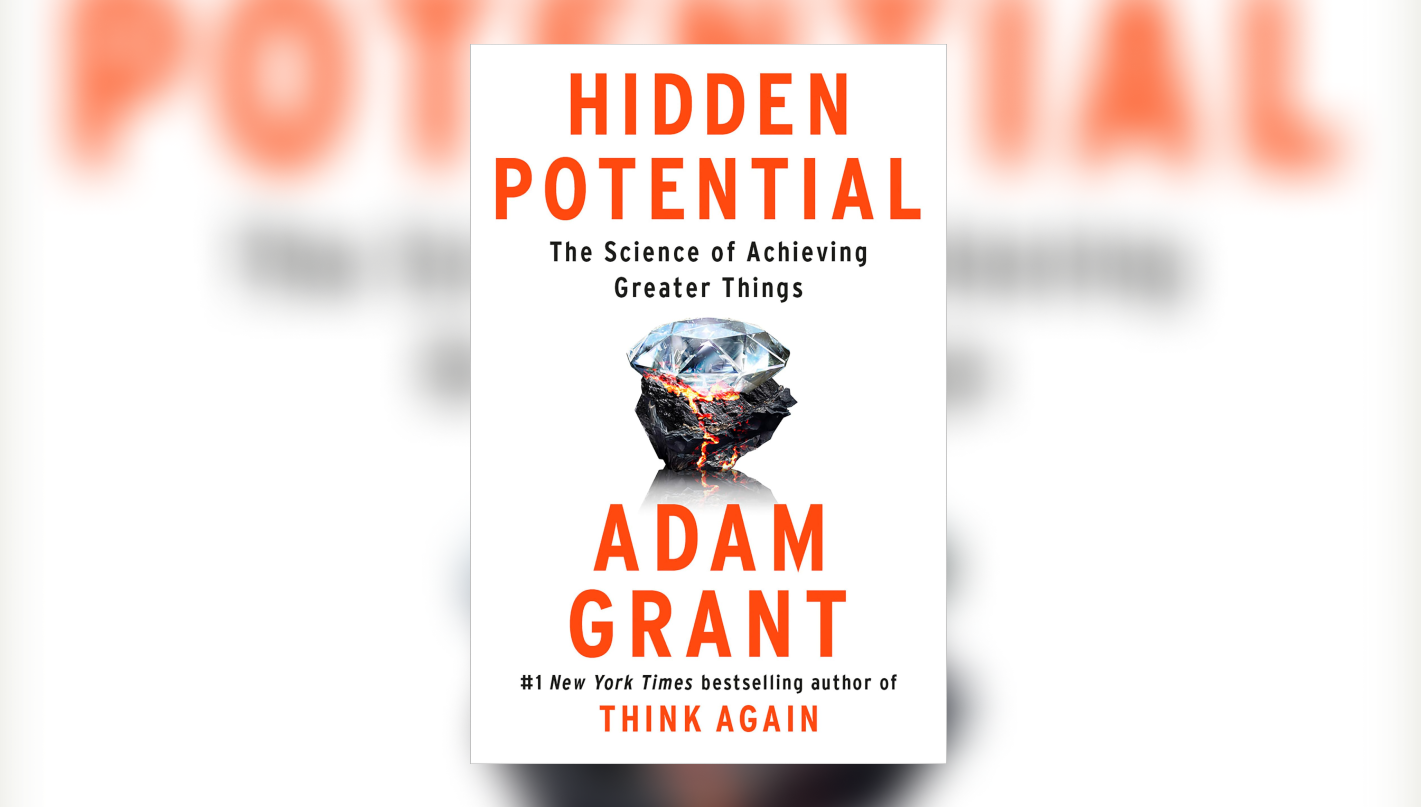Feeling Stuck?
Adam Grant's advice

Hi there!
Today, following up from last week, I want to dive into Adam Grant’s Hidden Potential. I initially planned to cover it just once, but your warm responses to the previous letter made me decide to share it again—just this one time!
The part I’m excited to talk about today really comforted me while I was reading. Normally, I’m not the type who likes getting pep talk and comfort(jk. or am I?), so I wanted to keep it to myself. But then I decided to break it down for you.
The winding path to destination
We all crave growth and want to reach our goals as quickly as possible. Imagine if we could just close our eyes and sprint straight to our targets—how awesome would that be?
But cognitive scientists Wayne Gray and John Lindstedt point out in the book that reality isn’t like that. They discovered that our ability to perform tasks hits a plateau, and once we reach that point, we actually start to decline before we can make progress again. In other words, when our skills stagnate, they tend to get worse before they get better.
Why? Because when we’re stuck, we need to take a step back, explore a different path, or find a new route. Adam Grant, the author, explains it like this:
“We usually fear taking a step back. Slowing down feels like losing what we’ve worked hard to gain, retreating feels like giving up, and blazing a new trail seems like going off course.”
But if we don’t carve out new paths and stay in our comfort zone, our progress slows, and we end up stuck. Searching for a new way often feels like wandering, which ramps up our anxiety. So, we rush to find the “right answer” and feel pressured to discover the perfect route. However, Grant reminds us:
“Sad news: there’s no perfect map. There’s no map that shows the exact path. There might not even be a path at all. We might have to carve our own way bit by bit.”
Thankfully, Grant reassures us that embarking on a new path doesn’t always require a detailed map. What we need is a compass—a tool that points us in the right direction and alerts us when we stray from our course.
Maybe that straight path to our destination is nothing more than a mirage.
Are mentors really necessary?
When we’re unsure if we’re on the right path toward our goals, we usually seek out experts. Whether it’s life or work, we look for authorities in the field to learn from them, either directly or indirectly. We try to find as many experts as possible to gain their wisdom. But Grant isn’t so sure about this approach and actually throws some shade on it. He even warns that the top experts might be the “worst guides” for two main reasons:
First, they’ve already traveled a long way. Having accumulated so much experience over time, they might not remember what it’s like to be a beginner. The more knowledgeable they are, the less they can empathize with someone who doesn’t know much. Can you relate?
I love taking life advice from those older than me, but I always listen cautiously for this very reason. Even if we’ve been through similar times, much of their memory has likely been worn down by the years. They can’t fully understand what my life is like now.
Second, even if a mentor or expert provides amazing guidance, we don’t share the same strengths, weaknesses, personality traits, or backgrounds. The challenges they faced in life are unlikely to be the same ones we encounter.
So, what should we do? Should we dismiss the idea of having mentors altogether? Adam Grant suggests that having multiple mentors is actually more effective. Specifically, he says:
“Just as it’s unwise to seek only basic advice from the top experts, relying on a single guide is also a mistake. No one has a complete understanding of your journey. But by gathering directional insights from multiple guides, you might discover paths you couldn’t see on your own. The more uncertain your path and the higher the peak you need to climb, the more guides you’ll need. The key is to piece together various bits of advice to build a path that suits you.”
Speaking from personal experience, I’ve been skeptical about the effectiveness of mentors for various reasons. Even when I’m struggling, I’m not one to reach out for help. One reason is exactly what Grant mentioned: I don’t think any so-called “expert” could fully understand my situation and be actually in my shoes. After all, no one has pondered my life or work as much as I have.
But after reading this, I realized it might be okay to lower my expectations of individual mentors and instead seek light advice from several people. In other words, instead of searching for one perfect mentor, I could look for five good ones. After all, a 100% perfect mentor probably doesn’t exist.
"Lethargy"
When we hit a plateau on our current path and find ourselves needing to backtrack or turn around, it’s easy to feel disheartened. The main reason is that stepping back doesn’t guarantee a direct route to a new peak. You might backtrack once or twice, but who knows if that will lead you to your destination? What if you have to turn around ten more times? Eventually, you might end up stuck forever.
Grant calls this lethargy. Have you ever felt stuck and empty? It’s not exactly depression, but it feels like there’s no joy in living. Your focus drifts, and your desire to do something fades. You know you need to act, but you’re doubtful that anything will change, falling into a sense of skepticism. Grant says this is the perfect time to “take a detour off the highway to recharge.”
We know that achieving something requires a ton of effort. We need intense focus on one thing for a long time. We have to work longer hours, and sometimes, to achieve something big, we have to give up work-life balance.
But Grant disagrees. He suggests that instead of working harder when we’re feeling lethargic, we should take a “detour” to feel a sense of progress. When we’re stuck, pushing harder doesn’t help much. Instead, engaging in hobbies or side projects—even small progress in these areas—can boost our motivation and positively impact our main work. Several studies support this idea.
He puts it this way:
“A detour is a way to leave the main road to recharge. It’s not about resting. It’s not about doing nothing and just sitting there. It’s about briefly deviating from the path while still moving forward.”
Wrapping up
Honestly, some parts felt a bit too hopeful and made me a little uncomfortable while reading, but I think it’s something worth remembering when you’re feeling down, so I wanted to share it with you.
I’ll leave you with one of my favorite words in the book to finish today’s letter:
“Progress is hard to notice when you only look at moments in isolation. Progress unfolds over a long period. When you’re engrossed in a particularly tough moment, it’s easy to feel stuck. It’s only by looking back at the path you’ve walked over weeks, months, or even years that you can truly realize how far you’ve come and how much you’ve developed.”
How about you? If you’re feeling stuck and experiencing lethargy, how can you overcome it?
See you next week!


